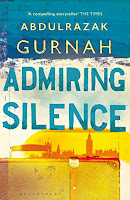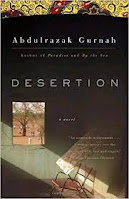Like so many people, I had hoped that 2021 would be a better year. Unfortunately, the pandemic continued impacting all aspects of life. In the second half of 2021 I spent several months at home in lockdown. While this kept me safe from COVID, it was a drain on mental health and wellbeing. With a stressful job, in perpetual crisis-mode, I found it hard to concentrate and take my usual pleasure in reading. But I muddled through. Fiction was my saviour - transporting me to new places and introducing me to new characters to escape the drama of real life.
My reading goal for 2021 was 30 books with a focus on fiction, which I achieved by reading 31 titles this year. When planning for 2021 at the start of the year, I did not really name any specific titles, which served me well as I went wherever my interests took me. Instead I used the reading bingo card I created to help me diversify my reading and my achievements are highlighted below.| B | I | N | G | O |
|---|---|---|---|---|
| Set during Wartime | Retelling of another story | Novel in Translation | Poetry Collection | Women's Prize Longlister |
| Lesser known book by a Famous Author | Essay Collection | Set in the Future | Booker Prize Longlister | About a non-Western world leader |
| Debut Novel | 19th Century Classic | Published in 2021 | Biography or Memoir | Set in Space or at Sea |
| Short Story Collection | Australian Literary Prize Longlister | Current Affairs / Politics | Protagonist is over 50 | Coming of Age Story |
| Pre-19th Century Classic | First Novel in a Series | Book on the 1001 List | Fiction Based on a True Story | Written by a male author |
Best of 2021
I read so many great books this year. I loved and highly recommend:
- Pat Barker - The Silence of the Girls
- Susannah Clarke - Piranesi
- Sean Kelly - The Game: A Portrait of Scott Morrison
- Emily Maguire - Love Objects
- Louise Milligan -Witness
- Tara Moss - The War Widow
- Sarah Winman - Still Life
- Evie Wyld - The Bass Rock






































